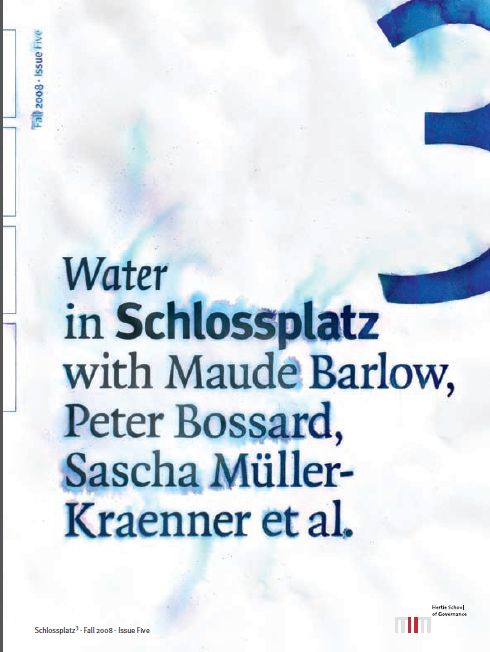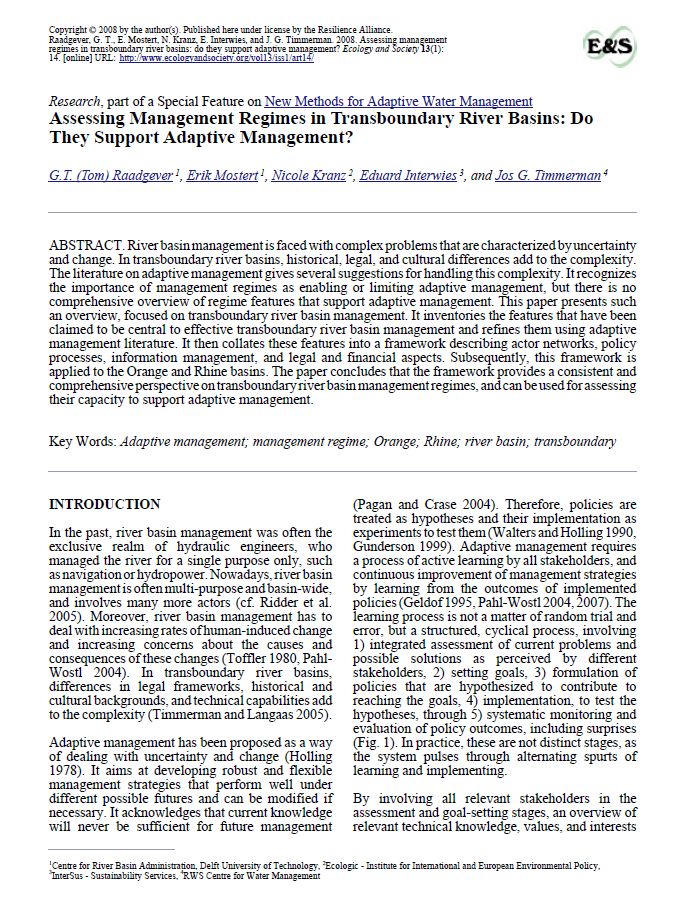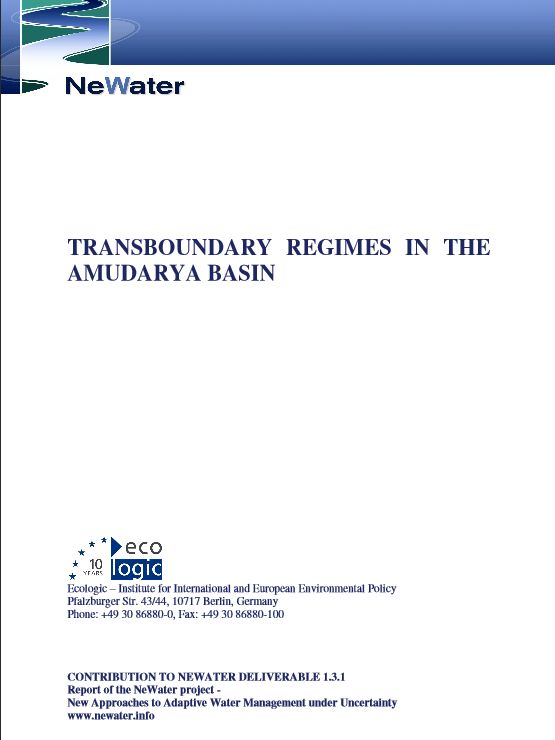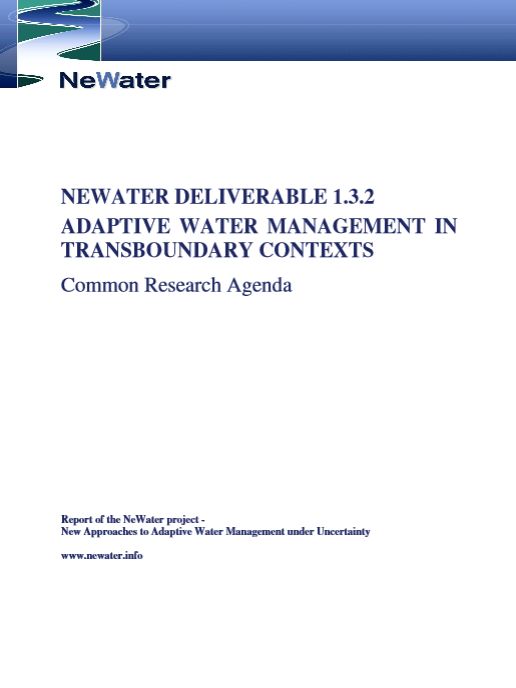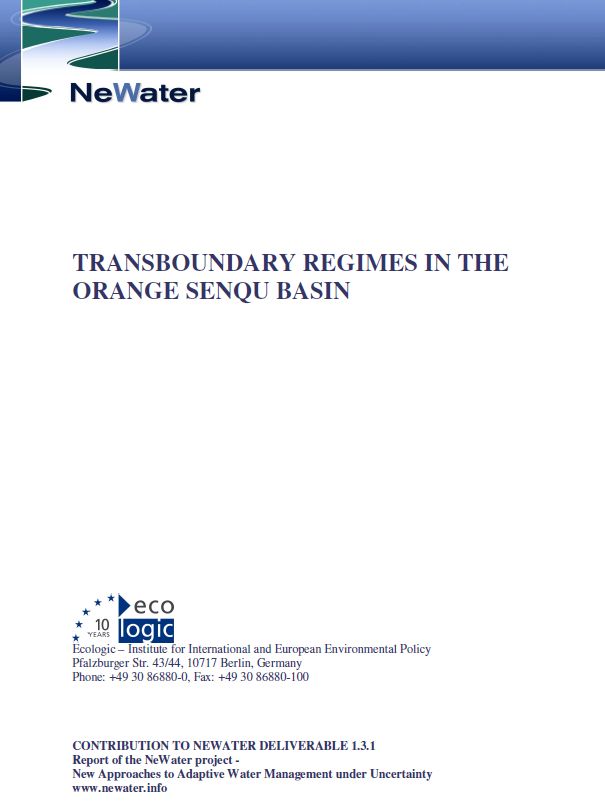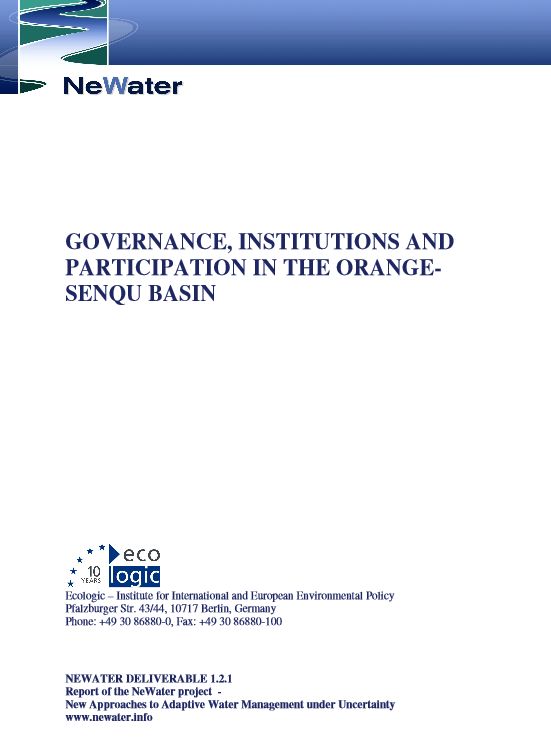Transboundary River Basin Management in Uzbekistan
- News
- Date
-
- Location
- Urgench, Uzbekistan
Nicole Kranz and Antje Vorwerk of Ecologic Institute paid a visit to the Amudarya Basin in Uzbekistan in May 2006. Main research interests were the information exchange in transboundary river basin management and the co-ordination of international donor organisations in their support for regional water management strategies in the Amudarya Basin. A central event during this trip was the ‘Workshop on Information Exchange in Transboundary River Basins’, held in Urgench, Uzbekistan, organised in co-operation with the Tashkent Institute for Irrigation and Agricultural Mechanisation (TIIM). Experts and scientists from the three main riparian states of the Amudarya – Uzbekistan, Tajikistan and Turkmenistan – participated in this international workshop.
Background
The Amudarya case study in Central Asia constitutes one of the three research test cases for the research focus “Transboundary River Basin Management” of work package (WP) 1.3 of the project: New approaches to adaptive water management under uncertainty (NeWater). Other case studies in this WP are the Orange in Southern Africa and the Rhine in Western Europe.
Research Activities
Ecologic's research trip is part of a series of activities. In June 2005, first consultations with key-stakeholders in water management and applied science resulted in two main research foci for WP1.3 in the Amudarya Basin:
- The role of effective information exchange in RBMP;
- The modes of co-operation and co-ordination of international donor organisations in supporting a regional water management strategy.
A background paper on current practices in transboundary river basin management in the Amudarya was completed in August 2005, on the basis of an extensive literature review. As a first approach, this paper addressed both of the two research areas identified, thus providing a good starting point for further activities involving stakeholders.
In October 2005, Eduard Interwies (Ecologic Institute) discussed and sharpened these topics with the relevant key-stakeholders in two separate workshops, organised in co-operation with the Tashkent Institute of Irrigation and Agricultural Mechanisation (TIIM) in Tashkent.
The research of Nicole Kranz and Antje Vorwerk focussed on the practical verification of the insights obtained so far, the first steps towards the empirical examination of the identified research foci, as well as the build-up of effective working relationships and synergies with both the local Central Asian partners and the team members of other NeWater work packages (also present in Uzbekistan at the time).
Besides joint activities with NeWater partners, which included a field trip to the Amudarya and an internal NeWater workshop, the work of Ecologic focussed on the following activities:
- In-depth interviews with representatives of major donor organisations,
- In-depth interviews with representatives of scientific institutions in the Amudarya Basin,
- Workshop on information exchange and management in transboundary Water Management with scientists and water management experts from Tajikistan, Turkmenistan and Uzbekistan.
Results
The expert interviews provided a more profound understanding of the actual on-the-ground situation regarding transboundary river basin management. Although the literature review generated important background knowledge, its results had been rather limited. It was only through the face-to-face discussions with relevant experts that it was also possible to better understand sensitive issues in Central Asia related to the study subject.
In the context of information exchange and management, great progress was achieved by conducting the international workshop. The interactive discussions in the working groups during the workshop resulted in analyses of the situation that were much more complex than those that could be achieved through individual interviews. In addition, the workshop offered the opportunity to start with actual stakeholder interactions in this field, resulting in first steps towards a common understanding of the most pressing issues, as well as the development of first approaches to possible joint solutions.
The discussions with representatives of international donor organisations provided an overview of the current status of development in the water sector in Central Asia. In addition, options for future co-operation between NeWater and donor organisations were identified. These options will be further developed under the upcoming activities.
Outlook
The outcomes of the May activities are summed up in an internal report which will be discussed with the stakeholders involved, leading to an in-depth assessment of the situation based on empirical research. Future Ecologic field trips to Central Asia and the river basin will continue the stakeholder processes and discussions initiated with the October 2005 and May 2006 activities.



